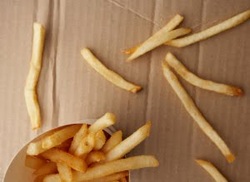 A new study is showing a link between unemployment and heart attacks. A joint study conducted by researchers and professors from Duke University and University of Michigan and sponsored in part by the National Institute of Aging found that unemployment can damage your heart as well as your pocketbook. The study specifically looked at the effects of unemployment on over 13,000 men and women between the ages of 51 and 75. Job Losses and Heart AttacksWhile the study did not indicate whether or not the job loss was a result of a layoff, termination, or voluntary resignation, it noted that though the increased risks were not huge, multiple job losses often presented as much of a threat as high blood pressure and smoking. Due to the age of the participants it is important to note that the study did not consider retirement as unemployment. Theories behind the increased risk of heart attacks due to the loss of a job included that the event may trigger a coronary issue - especially in those that already have heart disease or clogged arteries - and the fact that health insurance and access to medical care are lost as well as the job itself. How Poverty Comes Into PlayImpoverishment and heart disease risks have long been shown to be connected. In a 2009 study from the American Journal of Epidemiology showed that those in developed countries that have lower incomes and less education have increased risks for heart disease overall. Typically this is due to many of the same reasons behind job loss; increased and prolonged stress and a lack of adequate healthcare. Additionally, those who live in poverty are more likely to partake in smoking and are at an increased likelihood to be obese. What Can Be Done?Education and awareness are some of the most effective ways of combating these issues. Unfortunately people will lose their jobs, but the best thing we can do is keep them from slipping into poverty by supporting organizations that combat poverty. Both of these solutions are why the Omidi Brothers (Julian Omidi and Michael Omidi) have set up our own non-profit organization No More Poverty. By increasing awareness and helping to provide education and resources to fight poverty hopefully we will be able to increase the overall health of the people we share this planet with. Sources: Norton, Amy. "Lifelong Poverty Increases Heart Disease Risks." Reuters. Thomson Reuters, 27 Mar. 2009. Web. 21 Nov. 2012. <http://www.reuters.com/article/2009/03/27/us-lifelong-poverty-idUSTRE52Q3S520090327>. "Study Links Unemployment, Heart Attacks." Chicagotribune.com. Tribune Newspaper, 19 Nov. 2012. Web. 21 Nov. 2012. <http://www.chicagotribune.com/business/breaking/chi-study-links-unemployment-heart-attacks-20121119,0,836824.story>.
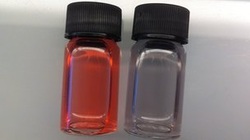 Julian Omidi is a philanthropist working to bring awareness to the issues of poverty. One major issue, which Julian Omidi discusses here. is the predominance of diseases among the impoverished around the world and the cost of healthcare. Unfortunately HIV and poverty are closely linked not only in impoverished countries such as those in Sub-Saharan Africa but also in the United States. In Sub-Saharan Africa 14,000 people are infected with HIV EVERY DAY, with 11,000 dying each day from related illnesses. It is no coincidence that these people reside in countries where 60% of the population lives on less than $1 a day. In the United States there is also a significant link between HIV and poverty; 2.1% of heterosexual men living in high-poverty areas in the U.S. are infected with HIV/AIDS. For many of those living in poverty, adequate health care is difficult if not impossible to receive and this results in a higher rate of fatality due to cancer. As adequate testing and treatment are not readily available to the impoverished cancer identification can be a significant stumbling block in the way of surviving cancer. With this knowledge it is with great to share that researchers in London have developed an "ultra-sensitive sensor" that will assist in identifying and detecting diseases earlier on in the process. This new visual sensor would not only provide a simple way to identify HIV and prostate cancer, it would also make such tests relatively inexpensive. The new test would be performed in a disposable container, with a solution that would turn blue for positive detection and red for negative. It is also 10 times more sensitive than current technology and could benefit in providing detection in previously undetectable cases of infection. The co-author of the study had this to say about the findings: "We have developed a test that we hope will enable previously undetectable HIV infections and indicators of cancer to be picked up, which would mean people could be treated sooner," said co-author Dr. Roberto de la Rica. "We also believe that this test could be significantly cheaper to administer, which could pave the way for more widespread use of HIV testing in poorer parts of the world." The team that has developed this technology plan on providing nonprofit health organization with guidance on how they can manufacture, fund, and distribute this new test to developing countries throughout the world. This is significant news and hopefully this test will be approved for clinical use quickly and provided to the people in poor areas across the United States and around the world. By Julian Omidi Sources: Gallagher, James. "Cheap Colour Test Picks up HIV." BBC News. BBC, 28 Oct. 2012. Web. 29 Oct. 2012. <http://www.bbc.co.uk/news/health-20084303>. Hall, Susan D. "Easier, Better, Inexpensive Testing ... with the Naked Eye." FierceHealthIT. FierceMarkets, 29 Oct. 2012. Web. 29 Oct. 2012. < http://www.fiercehealthit.com/story/easier-better-inexpensive-testing-naked-eye/2012-10-29>. Mbirimtengerenji, Noel Dzimnenani. "Is HIV/Aids Epidemic Outcome of Poverty in Sub-Saharan Africa?" National Center for Biotechnology Information. U.S. National Library of Medicine, Oct. 2007. Web. 29 Oct. 2012. http://www.ncbi.nlm.nih.gov/pmc/articles/PMC2205968/. Winslow, Ron, and Betsy McKay. "Study Looks at HIV and Poverty." Wall Street Journal. Dow Jones & Compnay, 18 July 2010. Web. 29 Oct. 2012. < http://online.wsj.com/article/SB10001424052748704875004575375070903484974.html>.
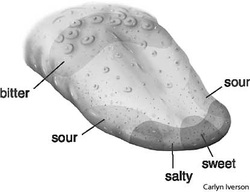 In the following article, Julian Omidi discusses the recently published findings that obese children are less sensitive to taste than their non-obese peers. Julian Omidi is a philanthropist, and co-founder of the charity No More Poverty with his brother Dr. Michael Omidi, MD.Obesity rates in children in the United States are astronomical. Incidences of type 2 diabetes, heart disease, kidney disease and high blood pressure, once only seen in the middle aged, are now commonly diagnosed in young children. While there are many individual factors that contribute to this epidemic, the overwhelming reason for this unfortunate trend is the cultural lack of activity accompanied by the easy availability of sugary, salty and fatty processed and fast foods. It is believed that these foods are what experts call “hyperpalatable,” [1] which means that the sugar, fat and salt components trigger a release of the chemical dopamine to the brain, which can cause a type of euphoria, making moderation of consumption extremely difficult. As a person becomes used to eating large quantities of food indiscriminately, food choices often become whatever has triggered the hyperpalatable reaction in the past—choices that are often quite unhealthy. Now, a study recently published in the BMJ Archives of Diseases in Childhood [2] found that obese adolescents are actually less capable of perceiving taste differences than thin peers, which may lead to increasing the volume of food consumed in order to achieve the desired emotional affect, and to choosing foods that are more intensely flavored with salt and sugar. The study was performed on children and adolescents ranging in age from 6 to 18. 99 subjects were in the obese category (having a body mass index above the 97th percentile) and 94 subjects that were in the normal weight category (a body mass index below the 90th percentile). The participants were given strips of paper infused with different flavors--salty, sour, savory, sweet and bitter—in different concentrations. Obese children were consistently less able to detect the flavor profiles of salty, savory, and bitter than the normal subjects and had trouble identifying the correct concentrations of flavor in the sweet examples. The non-obese participants also differed in their obese counterparts in that the younger subjects were less accurate in their taste perceptions than the older ones, but it was found that the phenomenon was not the same for the obese participants; the ability to detect flavors did not sharpen with age[3]. The observational study could not identify exactly why obese children scored lower than their non-obese peers, but it is believed by the conductors of the study that the hormone leptin may contribute to sensitivity of taste buds as well as body weight. The results of this study might help in the fight against obesity. To learn more about obesity and the problems it has presented in the United States you can visit the blog of my brother Dr. Michael Omidi. [1] Eng, Monica: Flamin’ Hot Cheetos Inspire Fanatic Loyalty Among Kids October 11, 2012 Chicagotribune.com http://articles.chicagotribune.com/2012-10-11/news/chi-20yearold-snack-with-high-levels-of-salt-and-fat-inspires-fanatic-loyalty-among-kids-20121011_1_ashley-gearhardt-snacks-addiction/2 [2] Overberg, Johanna; Hummel, Thomas; Krude, Heiko; Wiegand, Susanna: Differences in Taste Sensitivity Between Obese and Non-Obese Children and Adolescents September 20, 2012 bmj.com http://adc.bmj.com/content/early/2012/08/20/archdischild-2011-301189.abstract [3] Bakalar, Nicholas: Obese Children Less Sensitive to Taste October 1, 2012 Nytimes.com http://well.blogs.nytimes.com/2012/10/01/obese-children-less-sensitive-to-taste/?ref=nutrition
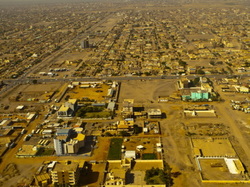 Philanthropist Julian Omidi is cofounder of No More Poverty with his brother, Dr. Michael Omidi. No More Poverty is an organization dedicated to bolstering the work of charities that strive to end global poverty and its causes. In this article, Julian Omidi discusses the conditions of refugee camps in South Sudan, and the conflict that continues to rage in that region.I just read an incredibly disturbing article about the conditions for refugee children in South Sudan. It seems that thousands have been made ill from the horribly unsanitary conditions in the refugee camps. According to Doctors without Borders, approximately three children die every day in the camps from diarrhea, malaria and other avoidable illnesses. The camp, which is located between Sudan and South Sudan, sits on a flood plain which turns into a veritable swamp during the heavy rains. Latrines overflow; everyone is constantly wet and bacterial infection runs riot. The conditions are so bad that there has been an attempt by the United Nations to relocate the refugees to safer grounds, but the constant arrival of new refugees in militarized zones forced a halt to the effort until the new arrivals had been moved out of danger. According to the article: “’These are unequivocally unsafe and unfit locations’ said Adrian Edwards, a spokesman for the Office of the United Nations High Commissioner for Refugees. ‘It’s still an ongoing, full-fledged crisis.’”One of the many delays in moving the refugees to safer ground is the possible existence of land mines in the lesser populated regions of Jamam. There are few roads leading into and out of the camps, making deliveries of food and medicine very difficult The conflict in Sudan has been raging for decades, and even the secession of South Sudan has done little to resolve it. Both regions have been squabbling over the profits from Sudanese oil reserves, and rebel factions, opposition movements and militias keep springing up and threatening the lives of the people. The situation in the Nuba Mountains is similar to the “Lost Boys” mass flight; thousands of children are wandering the border looking for refuge. The new accord between Sudan and South Sudan over the exportation of oil has done little to end much of the strife, as four Nigerian peacekeepers were recently ambushed and killed by an unidentified party. The article goes on to say: “According to the United Nations, 300,000 people have died because of the war. The Sudanese government says 10,000 have died. A peace agreement was signed between the government and one rebel group in 2011, but three other rebel groups have refused to sign.”Situations like the conditions and the strife in Sudan can make anyone feel absolutely helpless, but that shouldn’t stop us from doing whatever we can to create a world where people no longer have to feel threatened by their own governments, or suffer and possibly die in miserable and unsafe conditions. The charities we sponsor at No More Poverty do great work to rescue people all over the world from perishing conditions of poverty, and giving a little support to organizations like Drop in the Bucket (which provides clean water to schools and communities in destitute regions) and International Surgical Mission Support (which provides free medical care to people in poor countries) may ultimately help cure the world of many of its evils. Sources: Gettleman, Jeffrey. "Child Refugees Die as Illnesses Sweep Camp In South Sudan." The New York Times. The New York Times, 07 July 2012. Web. 11 Oct. 2012. <http://www.nytimes.com/2012/07/07/world/africa/refugee-children-dying-at-alarming-rate-in-south-sudan-aid-groups-say.html?_r=1>. Kushkush, Isma’il “Sudan: Peacekeepers Killed in Ambush” Nytimes.com http://www.nytimes.com/2012/10/04/world/africa/nigerian-peacekeepers-killed-in-darfur-ambush.html?ref=sudan
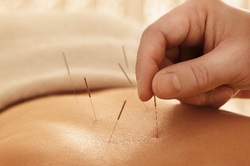 Julian Omidi understands that those who suffer from chronic pain truly suffer. Here, Julian Omidi reviews the effect of chronic pain and how new evidence suggests that acupuncture may prove beneficial after all. According to recent statistics on chronic pain, about 50 million Americans are currently suffering. Chronic pain can range from headaches to arthritis to back pain and so much more. Not only do the people who experience chronic pain suffer so do their loved ones and the industries they work in; for example, approximately $50 billion per year are lost as a result of headaches alone. For years there has been debate on whether or not treatment methods such as acupuncture are actually beneficial to those with chronic pain, especially beyond the perceived "placebo effect." Time magazine recently reported on new findings regarding acupuncture, which were published in the Archives of Internal Medicine. The research was led by Andrew Vickers, a biostatistician and epidemiologist at Memorial Sloan Kettering Cancer Center and found that acupuncture was effective in reducing some people's chronic pain. Acupuncture was found to be more effective than both standard pain treatment and "sham needles" (toothpicks), leading the researchers to conclude that there is more at play than just the placebo effect when it comes to the treatment. For a patient that was experiencing a baseline pain rating of 60 (on a scale of 0 to 100) it was found that through traditional treatment methods the pain dropped to an average of 43, for sham needle treatment pain dropped to 35, while actual acupuncture treatment saw pain scores fall to an average of 30. This treatment method can be beneficial for osteoarthritis, headaches, pain of the neck, shoulders, and back and more. While this is by no means definitive evidence to suggest the benefits of acupuncture it is new evidence that may suggest, if you live with chronic pain, to give acupuncture a shot. The Omidi Brothers, Julian Omidi and Michael Omidi, support charities through a non-profit organization and regularly write on the latest health news on various blog sites. Learn more about Julian Omidi by visiting here. Source: Sifferlin, Alexandra, Alice Park, and Maia Szalavitz. "Acupuncture May Offer Real Relief for Chronic Pain | Healthland | TIME.com." Time. Time, 11 Sept. 2012. Web. 25 Sept. 2012. <http://healthland.time.com/2012/09/11/acupuncture-may-help-reduce-chronic-pain-after-all/?iid=hl-main-feature>.
 Homelessness runs rampant through the streets of Los Angeles, which is why Julian Omidi feels it is important to combat it. Julian Omidi is sponsoring an annual event that works to provide a local non-profit with the fundraising that they need to combat this problem properly. Unfortunately, Los Angeles has been given the title of "homeless capital of America" as our city is the city that the most homeless people in the United States call home. Here are some statistics regarding the homeless population in LA: - While 40 is the average age of homeless men and women in Los Angeles, there are many young children that are experience homelessness as part of a family or as individuals.
- As many as 20% of the homeless are physically disabled and as many as 25% are mentally ill.
- Graduation rates from high school and college are higher than the overall population's graduation rate: 48% graduated from high school, while 32% had a bachelor degree or more (compared to 45% and 25% respectively).
"An estimated 254,000 men, women, and children experience homelessness in Los Angeles County during some part of the year and approximately 82,000 people are homeless on any given night."Sometimes it takes a bit of spectacle to grab the attention of people in the city of Los Angeles and that is why Upward Bound House, a non-profit organization that provides assistance to families and individuals that are experiencing homelessness, will be holding it's annual Welcome Home Celebration on October 9, 2012. This event will feature a silent auction, a dinner prepared by Wolfgang Puck, live entertainment, and more in order to raise money for the organization. The Omidi Brothers - my brother Michael Omidi and I - are proud to sponsor the Upward Bound House's Annual Welcome Home Celebration. If you live in the Los Angeles Area and would like to attend the event you can purchase tickets by clicking here. However you choose to get involved with combating homelessness in Los Angeles we, the Omidi Brothers, hope that you will especially by helping Upward Bound House. Source: Roberts, Joel John. ""I Love L.A." Means Ending Homelessness in L.A." The Huffington Post. TheHuffingtonPost.com, 24 Aug. 2012. Web. 17 Sept. 2012. <http://www.huffingtonpost.com/joel-john-roberts/ending-homelessness-los-angeles_b_1818446.html> Statistics: http://www.laalmanac.com/social/so14.htm
Hi Everyone, Julian Omidi here, just stopping by to update you on what Dr. Omidi and I have been up to with our organization, No More Poverty. As many of you know, my brother, Dr. Omidi, and I created No More Poverty in order to help other organizations end poverty through a variety of different outreach efforts. Well, recently, we discovered another organization that we just had to place our support behind. Based in Los Angeles, Foundation for Second Chances is a very effective community based organization that offers mentoring programs, tutoring, after school activities and literacy support to scores of young people who are living in underserved communities throughout the city. It excites us to hear about students who were once failing in school, but who are now achieving A and B averages thanks to the programs offered through Foundation for Second Chances. Once we learned about what the organization has been able to accomplish with the help of more than 300 volunteers, we wanted No More Poverty to immediately offer support. Despite being on a tight budget, Foundation for Second Chances works very hard to bring programs to about 150 inner-city youth in Los Angeles each and every day. Going above and beyond the pale, they also provide solid mentoring relationships to the children they serve. When Dr. Michael Omidi and I formed No More Poverty, helping community based organizations like Foundation for Second Chances was exactly what we had in mind. Now, I’m not just telling you about this organization because No More Poverty supports it. I’m not even taking the time to write to you about it simply because they are doing such an awesome job in providing outreach assistance to so many bright and talented young people. While these are certainly topics I can spend a lot of time expounding on, my real purpose in taking the time to write to you today is to ask you to help Foundation for Second Chances, too. There are a number of ways that you can help Foundation for Second Chances continue to make a positive impact in Los Angeles. To begin with, your financial contributions are always appreciated. Second Chances uses monies donated to them to purchase books and other school supplies, as well as to help fund their after school and tutoring programs. They even help children access regular medical check-ups and health screenings. You may also help Foundation for Second Chances by volunteering your time. Whether you volunteer as a mentor, a tutor or you volunteer to help organize a special event, your hands-on assistance is always welcome. Most of the services that Foundation for Second Chances provides to Los Angeles youngsters are made possible by committed volunteers who recognize a need and are willing to stand with a legion of other volunteers in helping improve the lives of the 1500 or so young people and their families who are currently being served by the organization. Michael Omidi and I also hope that you’ll help spread the word about the good work that Foundation for Second Chances is doing in Los Angeles. You can do this by telling everyone that you know about how No More Poverty is supporting the organization and why Dr. Omidi and I decided that NMP should do so. We also hope that you’ll tune into the NMP Facebook page to learn more about No More Poverty, Foundation for Second Chances and all of the other organizations that Dr. Michael Omidi, M.D. and I hope that you’ll support. Thanks for stopping by and please remember to bookmark and return often for future updates about No More Poverty and the progress we are making in our goal of ending poverty wherever it exists. -Julian Omidi
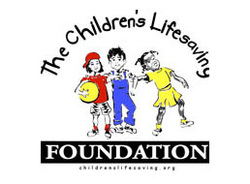 Julian Omidi formed No More Poverty in order to not only help those around the world but also those at home in Los Angeles. Julian Omidi is fulfilling his desire to help children suffering in the greater Los Angeles area by providing support to organizations like Children's Lifesaving Foundation. When my brother Michael Omidi and I began our non-profit organization our goal was to aid those suffering from poverty around the world, a goal that we continue to strive for through support of various charities like Drop in the Bucket and Simone's Kids. We also believed fully that helping children suffering in the Los Angeles area, a city that we call home, was imperative to our cause. This is why we have provided assistance to charities such as A Place Called Home and Under the Bridges & On the Streets. We are excited to announce that we are now providing support to another charity based in Los Angeles that helps the impoverished; whether that be at-risk youth or low-income and homeless families called the Children's Lifesaving Foundation. Children's Lifesaving Foundation has served over 50,000 children and thousands of additional families in Los Angeles through its many multifaceted programs. some of these programs include: - Adopt-A-Family - This program helps to move homeless families out of shelters and into new homes in order to provide them with stability. These families become permanent members of their foundation family.
- Kids Helping Kids - This program is aimed at children aiding other school-aged kids in getting the school supplies, books, and backpacks they need to succeed and excel in school.
Other programs include their Camp4All and Project Angel Wings programs. Please get involved with this organization today so that families suffering in the Los Angeles can find some relief and help.
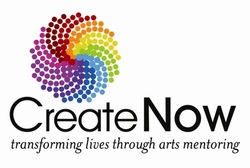 No More Poverty is a non-profit organization founded by my brother Michael Omidi and I, Julian Omidi. We know that poverty does not afflict people in any one way and that it can affect people in facets ranging from homelessness to lack of education to hunger and lack of heatlhcare. We have supported a variety of charities from those that aid children in Uganda to those that fund sports programs for inner city children. We are proud to announce that we are now a supporter of Create Now, which mentors children in Southern California in the creative arts. Create now is a program that serves vulnerable kids and young adults from age 2 to 25. These individuals have been orphaned, left homeless, abandoned and neglected, have become teen parents or runaways, developed substance abuse and dependence, become gang members or been incarcerated to name but a few of the problems these youth have been affected by. Create Now then matches these children and young adults with a mentor that can teach them how to create through music, theater, and art. These kids are then provided with the opportunity to show and perform their works to the public. This is such a great cause, as the arts have been proven to be a great creative outlet for anyone, especially those who have gone through traumatic events in their lives. At No More Poverty we encourage you to get involved and support this noble charity. Visit our Facebook page to get the latest updates and get involved with charities like Create Now.
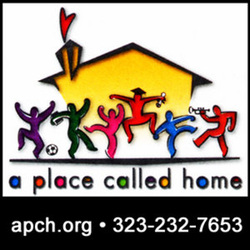 Omidi Brothers Michael and Julian Omidi support the efforts of A Place Called Home. Omidi Brothers Julian and Michael Omidi formed the not-for-profit organization No More Poverty to aid those suffering from poverty around the world and at home and through A Place Called Home they can aid those living in South Central Los Angeles. South Central Los Angeles has unfortunately become synonymous with urban decay due to its depiction in films such as John Singleton's Boyz n the Hood and Menace II Society as well as picture painted by N.W.A.'s famous album Straight Outta Compton. As a result of the decline of manufacturing in the area beginning in the 1970's the area saw a precipitous decline into street gangs and street crime, poverty, drugs, and riots. But many good and hardworking people reside in South Central Los Angeles, people that struggle to keep their children out of gangs and in school with very few resources at their disposal to ensure that their children find opportunity and, most importantly, safety. A Place Called Home is an organization in South Central Los Angeles that aids underserved youth and families by providing a safe haven for support, inspiration, and opportunity so that these youth can take charge of the direction and quality of their lives. A Place Called Home provides: - Educational Services
- Health, Nutrition, and Well-Being Services
- Community and Volunteer Initiatives
- Recreation and Athletics Programs
- Programs for Creative Expression in Music, Dance, and Fine Arts
- And More
The not-for-profit organization I founded with my brother Dr. Michael Omidi, is aimed at providing those caught up in the cycle of poverty to find solutions and A Place Called Home provides solutions for the impoverished in South Central Los Angeles. APCH is fighting to decrease the amount of violent and gang-related activities, increase the number of high school graduates in the area, and provide an increased awareness of health issues as a few of their many goals they look to achieve over the next 5 years. You can help A Place Called Home in their efforts by visiting their website today. You can learn more about other like-minded charities that we support in the fight against poverty by visiting No More Poverty today.
|









 RSS Feed
RSS Feed